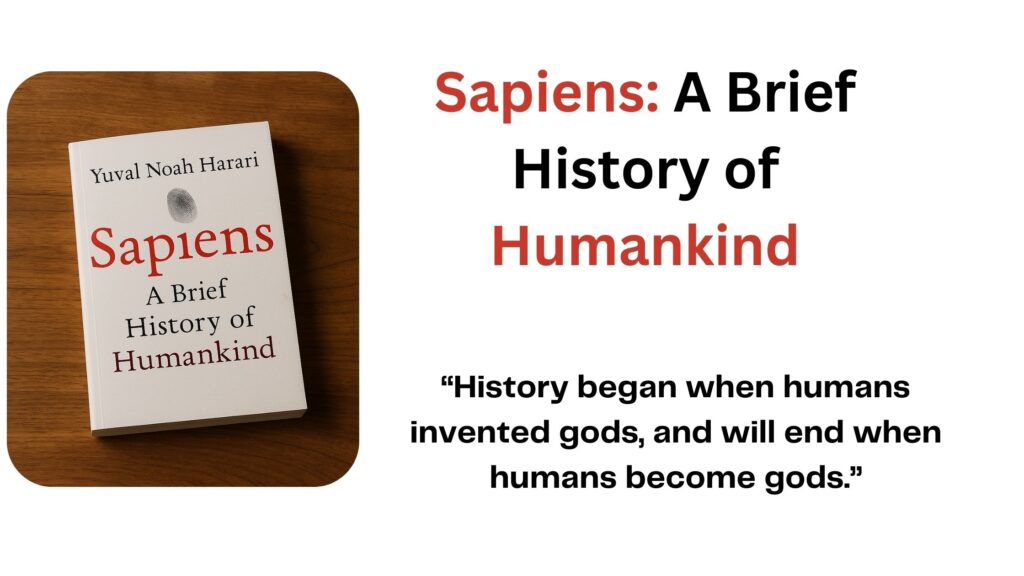
“You could never convince a monkey to give you a banana by promising him limitless bananas after death in monkey heaven.”
– Yuval Noah Harari, Sapiens
Today, I’m talking about a book that dives deep into our very existence — not just who we are, but how we became who we are. A book that takes you on a journey through thousands of years of human history… but in a way that’s actually fun and thought-provoking.
I’m talking about Sapiens, written by Yuval Noah Harari. This book doesn’t just list historical events — it connects the dots. It explores how we started from caves and campfires and ended up with credit cards, companies, and cultures.
📚 Why Sapiens by Yuval Noah Harari Is Different
If you’re looking for a non-fiction book that’s long but never boring, Sapiens: A Brief History of Humankind is the one. Written by Yuval Noah Harari, this book is a deep dive into the journey of human evolution — from early hunter-gatherers to the tech-savvy humans we are today.
What makes Sapiens different is how it covers so many big ideas — trust, money, religion, culture, and society — in a way that’s both simple and engaging. Each chapter feels like a well-written blog post, packed with stories and insights, yet everything is beautifully connected.
The best part? The language is easy to understand, even if you’re not a history buff. As you keep reading, your interest only grows stronger.
💡 Key Lessons and Insights from Sapiens
This book isn’t just about history — it’s about understanding why we do what we do today. Here are some powerful takeaways:
Human development is not equal to human happiness – Even after all our progress, something always feels missing. This book makes you think deeply about that.
We live on shared beliefs – Concepts like religion, money, countries, and companies are all human-made stories we collectively believe in. That’s what holds society together.
The Agricultural Revolution wasn’t all good – Farming led to more food, yes, but it also brought inequality, disease, and harder lives in many ways.
The origin of marriage and family life – The book questions how and why we started living in fixed homes and forming nuclear families.
Why we created gods, laws, and systems – Sapiens shows how we built our world piece by piece — sometimes for survival, sometimes for power.
Each topic flows logically into the next — it feels like a clear timeline of human evolution. You’ll find yourself saying “Ohhh!” after almost every chapter.
🌍 Why Everyone Should Read Sapiens
Let me flip the question — Why not read it?
If you’ve ever been curious about where we came from, not as individuals but as a species, this book is a must-read. You are part of humankind’s story — and Sapiens tells that story like no one else.
It answers deep questions:
Why did we invent money?
Why do we believe in religion?
Why do we live in cities, marry, and work 9–5?
Even if you’re not into non-fiction or history, this book will hold your attention. It’s eye-opening, thought-provoking, and honestly… life-changing.
📌 Highly recommended for every curious mind out there.
A Fun Fact About My Experience with This Book
I read Sapiens about 6–7 years ago. At first, I thought it would be a boring historical book, full of facts and timelines — and I wasn’t even a fan of history back then.
But this book changed that perception. It kept me hooked. After finishing it, I went down a rabbit hole, watching interviews of Yuval Noah Harari on YouTube and reading more about human evolution.
That’s the power of this book — it opens your mind and makes you rethink everything you know about the world and yourself.